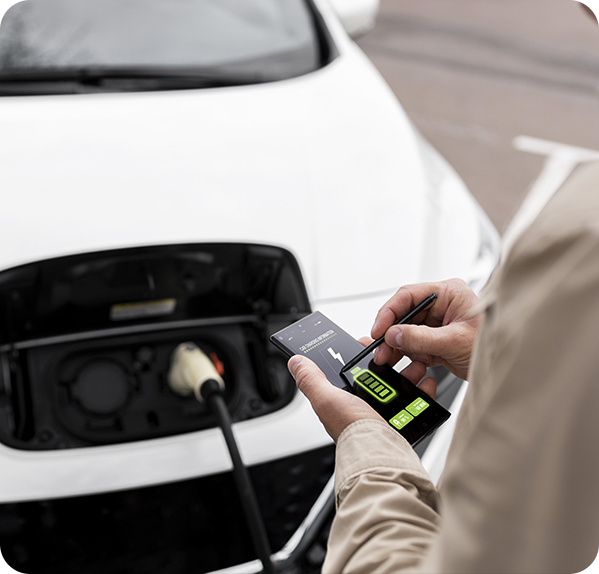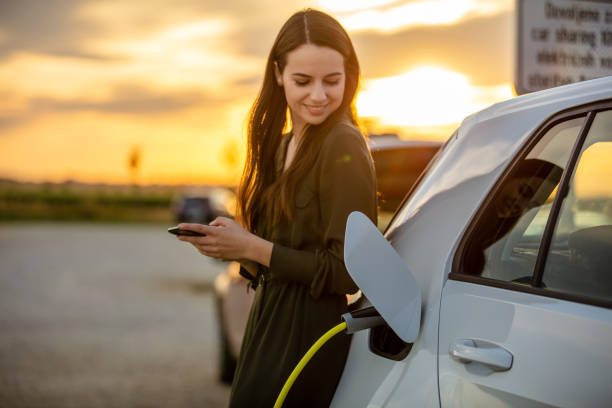All you need to know about Electric Vehicle Charging| General guide

All you need to know about Electric Vehicle Charging| General guide
The most frequently asked questions about electric vehicle charging are: What is an electric vehicle charger? How does it charge an electric car? What are the types of EV chargers? How to select a charger? And how much does it cost to charge an electric vehicle? This article is a detailed guide related to an electric vehicle charger in which we have covered it in all its aspects.

What is an electric vehicle charger?
An electric vehicle charger is an electrical device that charges car batteries. It takes electrical energy from the grid and puts it into the batteries. It follows the same logic as any electronic device you charge at home, such as your mobile phone. To charge it, you connect a charging lead to your mobile and connect the charger to an electrical socket. The charger takes AC voltage from the socket and converts it into the required Dc voltage, then supplies it to the mobile via charging lead. The process of electric vehicle charging is the same. The charger takes an AC voltage from the socket and then supplies it to the Electric car through a charging cable after converting it into the required DC voltages.
Main components of the electric vehicle charger
EV Charging Cable
The charging cable connects the EV charger to the car. EVS charging cables come in four modes. Mode 1 cable is not used for vehicles, yet it is used for E-bikes. Mode 2 cable comes with an EVS. You can use it to charge your car for a maximum of 3 kW load. A mode 3 cable is used for AC charging, and you can use it to connect the car to a charger. Mode 4 cable is designed to design fast charging. It can bear a high current, and you can use it to connect your car to a DC charger.
EV Charging PLUG
EV charging plug is equipment that connects electrical cars with the source of electricity for charging. There are two main categories of EVS plugs such as AC plugs and DC plugs.
Types of the electric vehicle charger
There are two types of EV chargers. One is an onboard charger, and the other is an off-board charger.
On-Board Charger
The charger that is installed inside the car is called an onboard charger.
Off-Board Charger
The charger that is installed outside the car is called an off-board charger. Its main advantage is that it is capable of charging batteries very fast, and it is extremely popular among consumers for that reason.
EV Charging Level
The process of refueling is straightforward in the traditional car. But, on the other hand, recharging an EVS is not as simple as refueling a traditional car for many reasons such as charger efficiency, charging cable quality, and plug quality. Besides this, there are three levels of charging that play a role in the charging time.
Level One
Level one charging is normally used by residential consumers. Level one charging requires 120 V AC, and at the rate of 4 miles/ hour, it fully charges the batteries in thirty hours.
Level Two
Level two charging is used by both residential and commercial consumers. Level two charging requires 220 V AC, and at the rate of 12-30 miles/ hour, it fully charges the batteries in 8-12 hours.
Level Three
We also call level 3 charging DC fast charging. Level three charging is only available in commercial charging stations because high voltage is required. At the rate of 3-15 miles/ min, it fully charges the batteries in 30 minutes.
How to select an EV charger?
When selecting a charger for your car, you must consider some basic parameters. The first and most important parameter is charger efficiency. To make it understandable, we can define it as if the charger is producing the same output for which it is designed, and then we can say it is efficient. If we say the charger is ninety percent efficient, it means ten percent of energy is wasted in heat. So, you should always select a charger that has high efficiency.
The second important parameter is the charger’s protection. Electrical equipment is prone to electrical problems during charging. If it has no electrical protection, it can be damaged in case of any electrical fault.
Another important parameter is cost. The cost of a charger changes depending on its performance and type.
When deciding which EV charger you should buy, you must consider those things also that affect Electrical vehicle charging.
What affects electrical vehicle charging speed?
EVS charging can be influenced by different things, such as batteries, the vehicle’s charging capacity, the charger, and the charging cable. Battery size is directly proportional to charging time. If the battery size increases, then charging time also increases.
Besides this, every vehicle has a different capacity to receive electrical input for charging. The higher that capacity is, the faster the batteries charge. The electrical output of the charger also affects charging time. The charger produces a higher current, charges the batteries faster than the fewer ampere chargers, and even the charging cable influences charging time. In the case of low-quality cables, electrical energy is wasted in the form of heat. In that case, you are charging time increases.
Some most frequently asked questions related to Electric vehicle charging
How far can electric car travel after a full charge?
The most frequently asked question is how far the electric car can go when fully charged. This depends on the car model and brand, but for an estimate, it can travel a minimum of 135 km and a maximum of 637 km after a full charge.
How much does it cost to charge EV batteries?
How much it costs to charge an EV’s batteries depends on the size of the batteries and the per-unit cost of electricity. Let’s consider an example: we are going to charge a battery of size 110 kW and the per-unit cost of electricity is $0.1, then the total cost of charging the battery will be $11.But if we also consider line losses, then our 10 percent of electricity will be lost during charging, and the actual cost of charging a 110 KW battery will be $12.1.
What is Cloud-based chargers management software?
Cloud base software is one that you can access from anywhere at any time through the internet. It has many advantages, to state a few: the downtime is negligible; your data is secure and you can get the backup anytime, you get more storage at a lower price, and it’s easy to connect users with vehicle data and other third-party software.
When we talk about cloud base charging, it means the charger is connected to software that is hosted on the internet. So, the charger can be easily monitored from anywhere through customizable dashboards. Besides this, it also provides other functionalities, such as allowing consumers to manage their real-time chargers and select a payment plan of their own choice.
Where can I charge my electric car?
There are different places where you can charge your electric car such as homes, offices, supermarkets, or at any public charging station.
The most popular location for recharging the batteries of EVS is home. Due to many reasons, most EVS consumers prefer it. Such as you don’t have to go anywhere. At night you can plug in your car to the source of electricity, and the car batteries will be fully charged in 15-30 hours. Another benefit is that it is economical. Besides electricity charges, you don’t have to pay any dollar to anyone.
The second most preferred location to charge EVS is the workplace. Everyone normally spent more than eight hours in their offices. If they get an opportunity to recharge their car while working in the office, then it will be a great convenience for them.
The third most popular location is the retail location, such as shopping malls, departmental stores, cinemas, universities, and hospitals. Nowadays, businesses such as hotels and cinemas are installing electric vehicle chargers on their premises to attract more customers.
If you are driving a car and you need a quick charge. In this situation, you can use an EV charging station. They provide you with a facility for fast charging.
If you do not know where the EV charging station is in Saudi Arabia, you can just install Qabis mobile application and you will get the location of all our available chargers, their type, charging time, and pricing.
Qabis is a one-stop shop for electrical vehicle charging solutions. We provide charger installation and maintenance services for residential users and provide e-mobility services to EV drivers. While driving they can access our charger and other details through our mobile application.
Based on the above-provided information now you can compare different Electric vehicle chargers concerning their electrical specification, types, and charging levels and eventually can select an EV charger that fits best your needs. Additionally, you can also troubleshoot the problem if you are not getting the expected result from your charger.
We keep sharing information about the latest trend in Electric vehicle charging. If you want to benefit from this valuable information, then keep following us.


